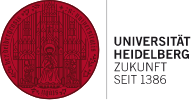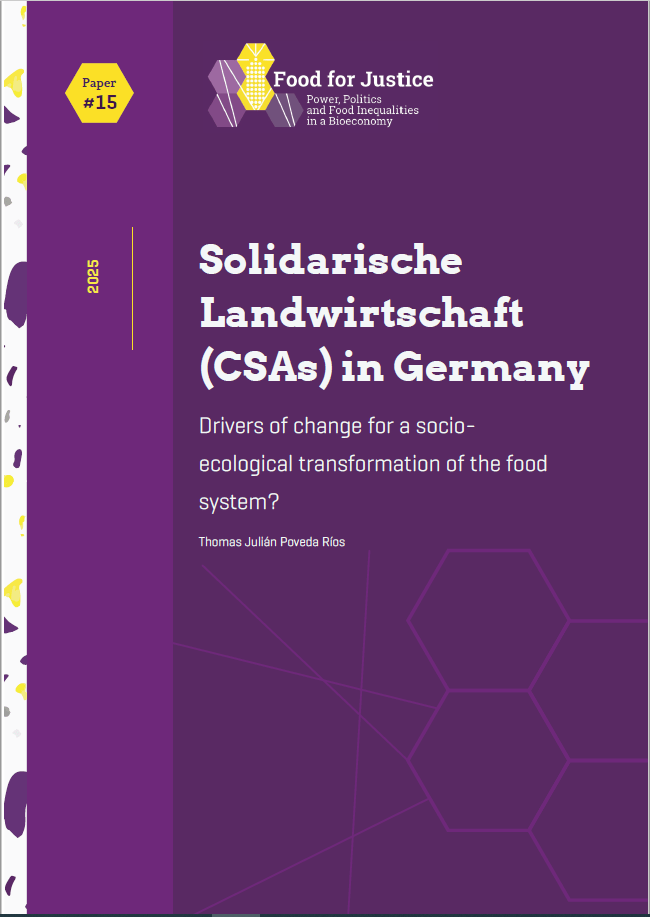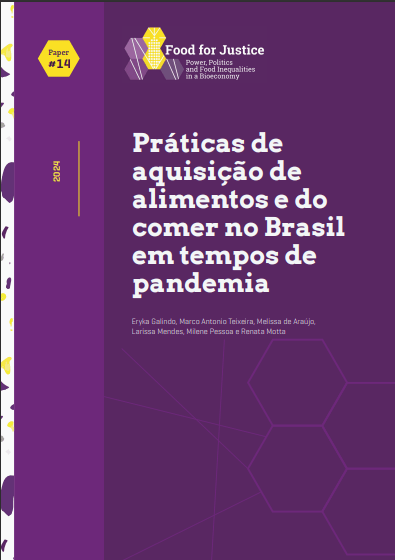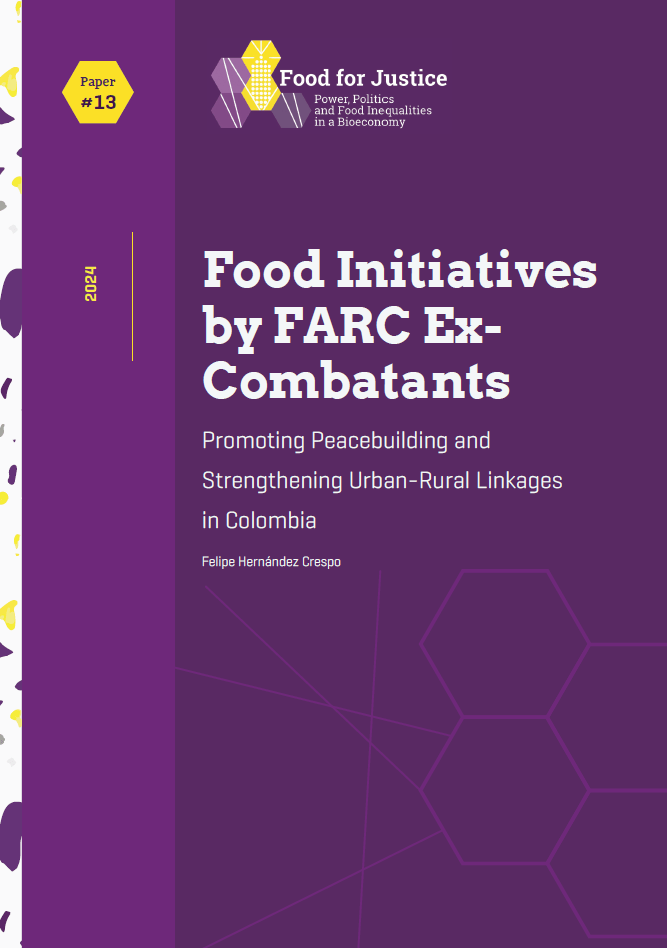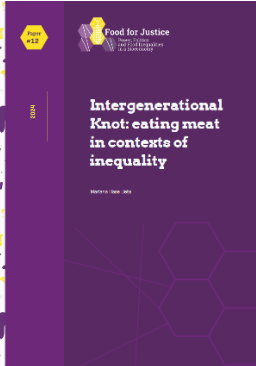Working Paper 15 • 2025
Solidarische Landwirtschaft (CSAs) in Germany: Drivers of change for a socio-ecological transformation of the food system?
Abstrato
In face of a multiple crisis within the current corporate food system, alternative models of food production and distribution have attracted increasing attention as catalysts for a socio-ecological transformation. Among these alternative models, Community Supported Agriculture (CSA) or as it is called in Germany, Solidarische Landwirtschaft (Solawi), emerges as a promising model for reshaping the socio-ecological landscape of food production and consumption. By shedding light on the transformative potentials and limitations of Solawis in the framework of a socio-ecological transformation of the local food system this paper aims to share knowledge and a further perspective on the question “How are we going to feed the world?”, the leading question of this working paper series. Through semi-structured expert interviews conducted in fall 2023 within two case studies around Berlin, the Apfeltraum Solawi and the Spörgelhof e.G. and a subsequent qualitative content analysis this work shares relevant insights across diverse domains of Solawi work, such as community-building, relationship with nature, fair wages and ecological farming practices.
Working paper 14 • 2024
Práticas de aquisição de alimentos e do comer no Brasil em tempos de pandemia
Abstrato
A pandemia da Covid-19 impactou as relações sociais, inclusive sobre as dinâmicas associadas à alimentação. O presente trabalho tem por objetivo identificar e analisar alterações nas práticas de aquisição de alimentos e do comer nos domicílios brasileiros no primeiro ano da pandemia. As análises se baseiam em dados de pesquisa representativa da opinião pública brasileira realizada por meio de coleta telefônica, entre os dias 21 de novembro e 19 de dezembro de 2020. Os resultados apontam para mudanças nas práticas de aquisição e do comer, com redução na frequência de sair de casa para comprar alimentos (68,9%) e para realizar refeições fora do domicílio, seja em estabelecimentos comerciais (74,4%) ou na casa de pessoas conhecidas (72,9%). Tais tendências de diminuição, justificadas pelas recomendações de distanciamento social como recurso para enfrentar a disseminação do vírus, são mais ou menos frequentes a depender dos marcadores socioeconômicos analisados, destacadamente, de sexo, raça ou cor, renda e situação de segurança alimentar e nutricional. Em relação às práticas de aquisição de alimentos, verifica-se que o ambiente alimentar digital passou a ser mais amplamente usado, sejapor meio da compra pela internet ou aplicativos de supermercados com entrega em domicílio (e-commerce) ou por meio de serviços de entrega de comida (delivery). Essa tendência foi observada tanto entre usuários já familiarizados com esses canais quanto entre novos adeptos. Em contrapartida, as feiras livres passaram a ser menos frequentadas pelas/os entrevistadas/os no primeiro ano da pandemia, com uma redução de frequência de 66,1% entre aqueles que utilizavam este serviço antes da pandemia. Essa mudança na prática de aquisição de alimentos pode representar, por um lado, maior exposição a alimentos ultraprocessados e refeições com perfil nutricional desfavorável, e, por outro, menor acesso a canais de comercialização de alimentos in natura e mais saudáveis. Finalmente, também significa uma maior tendência de compra de alimentos em grandes redes de supermercados e enfraquecimento de comerciantes de feiras livres. Considerando que momentos de crise, como a pandemia do Covid-19, podem tanto abrigar possibilidades abruptas de transformação nos sistemas alimentares, como fortalecer estruturas desiguais na produção, distribuição e consumo de alimentos, nossos dados apontam para a concentração de mais poder na cadeia de alimentos do sistema alimentar dominante e para exacerbação de desigualdades alimentares.
Working Paper 13 • 2024
Food Initiatives by FARC Ex-Combatants: Promoting Peacebuilding and Strengthening Urban-Rural Linkages in Colombia
Abstrato
This working paper explores how food initiatives led by FARC ex-combatants contribute to peacebuilding and strengthen urban-rural linkages in Colombia. The study investigates the motivations behind ex-combatants’ involvement in food initiatives, examines the connection between economic reincorporation and peacebuilding, and analyses how food acts as a bridge, materialising peace between urban and rural communities. Using a multi-method approach, this paper provides an overview of FARC’s political trajectory, highlighting its shift from armed insurgency to peacebuilding actor. It further maps the landscape of ex-combatant food initiatives, analysing their scale, organisational structures, roles within the food system, and the intersectional categories that shape them. Findings indicate that ex-combatants often view food-related projects as integral to economic reincorporation, motivated by a blend of campesino heritage, former guerrilla identity, and established regional production knowledge and practices. This combination emphasises the importance of urban-rural linkages in shaping collective reincorporation processes. These food initiatives, grounded in principles of territorial peace, align with broader peacebuilding efforts, aiming to strengthen urban-rural connectivity. Ultimately, this research underscores the critical role of food systems in building lasting peace and highlights the voices and agency of ex-combatants in shaping their futures.
Working Paper 12 • 2024
Intergenerational Knot: eating meat in contexts of inequality
Abstrato
Around the world, social movements are protesting against the corporate food regime (Friedmann & McMichael, 1989), denouncing the injustices associated with its structural dynamics of neoliberal capitalism, patriarchal domination, racism, coloniality, epistemic violence, and anthropocentric exploitation (Motta, 2021b; Holt Giménez & Shattuck, 2011; Holt-Gimenez & Patel, 2012). Many food movements are calling for a socio-ecological transformation and creating alternative forms to produce, share, prepare, consume and dispose of food, based on relations of care, solidarity and respect. In their heterogeneity, they provide a good analytical lens to explore the multiple and intersectional dimensions of food inequalities denounced and the directions of change desired by organized movements from civil society (Motta, 2021a). But which are the food movements that mobilize for a socio-ecological transformation of food politics in Germany? What are the main dimensions and intersections of inequalities addressed by them?
Based on an explorative mapping, this research identifies relevant food movements in Germany, their discourses and agendas. It takes as units of analysis food movements organizations with considerable collective actions and participation in social mobilization on a national scale during the last 5 years (2018-2023). Using an analytical framework elaborated in dialogue with theoretical and conceptual works on food movements, food inequalities, and dynamics of transformation in the food regime, the empirical data is presented along the categories: types of movements and activist discourses, time of emergence, juridical form, dimensions of food inequalities addressed, categories of intersectional inequalities considered, spatial locus of action (urban/rural), phases of the food system, sphere of social change most frequently targeted by the food movements. Based on the data, the dynamics of transformations are discussed.
Applying a qualitative and quantitative methodology which combined content analysis and coding, the research results in a mapping of the actors (Mayring & Fenzl, 2019; Saldaña, 2021). This working paper aims to give a first overview of food activism in Germany by assessing the actors in this field of social mobilisation and analysing their emancipatory potentials and limits.
Working Paper 11 • 2024
Food Movements in Germany. Analysis of actors in the socio-ecological transformation of the food system
Abstrato
Around the world, social movements are protesting against the corporate food regime (Friedmann & McMichael, 1989), denouncing the injustices associated with its structural dynamics of neoliberal capitalism, patriarchal domination, racism, coloniality, epistemic violence, and anthropocentric exploitation (Motta, 2021b; Holt Giménez & Shattuck, 2011; Holt-Gimenez & Patel, 2012). Many food movements are calling for a socio-ecological transformation and creating alternative forms to produce, share, prepare, consume and dispose of food, based on relations of care, solidarity and respect. In their heterogeneity, they provide a good analytical lens to explore the multiple and intersectional dimensions of food inequalities denounced and the directions of change desired by organized movements from civil society (Motta, 2021a). But which are the food movements that mobilize for a socio-ecological transformation of food politics in Germany? What are the main dimensions and intersections of inequalities addressed by them?
Based on an explorative mapping, this research identifies relevant food movements in Germany, their discourses and agendas. It takes as units of analysis food movements organizations with considerable collective actions and participation in social mobilization on a national scale during the last 5 years (2018-2023). Using an analytical framework elaborated in dialogue with theoretical and conceptual works on food movements, food inequalities, and dynamics of transformation in the food regime, the empirical data is presented along the categories: types of movements and activist discourses, time of emergence, juridical form, dimensions of food inequalities addressed, categories of intersectional inequalities considered, spatial locus of action (urban/rural), phases of the food system, sphere of social change most frequently targeted by the food movements. Based on the data, the dynamics of transformations are discussed.
Applying a qualitative and quantitative methodology which combined content analysis and coding, the research results in a mapping of the actors (Mayring & Fenzl, 2019; Saldaña, 2021). This working paper aims to give a first overview of food activism in Germany by assessing the actors in this field of social mobilisation and analysing their emancipatory potentials and limits.
Working Paper 10 • 2024
Kurzauswertung Befragung „Wir haben es satt!“ 2024
Abstrato
The large-scale protest “We’re Fed Up!” organized by the My agriculture alliance has been taking place every year since 2011 at the start of the Green Week agricultural trade fair in Berlin. The alliance campaigns for sustainable and fair agriculture and food production and calls for a turnaround in agriculture and nutrition. “We’re fed up!” is one of the central case studies of the BMBF junior research group Food for Justice: Power, Politics and Food Inequalities in a Bioeconomy at the Heidelberg Center for Ibero-American Studies, Heidelberg University. The project investigates different axes of food inequalities, in various scales and spatialities, and their dynamics of reproduction and change in food politics. The case study “We’re fed up!” explores the key justice demands that mobilize citizens to denounce food inequalities and call for alternative food policies in different regions of the world. On January 20, 2024, researchers from Food for Justice conducted a survey with participants in the “We’re fed up!” protest with the support of volunteer interviewers. The collected data provides insights on the demographics of the protesters, their concerns, political attitudes, and how they contribute to supporting a different approach to agriculture through their consumption and lifestyle choices. This brief summary presents the methods and selected results of the survey.




